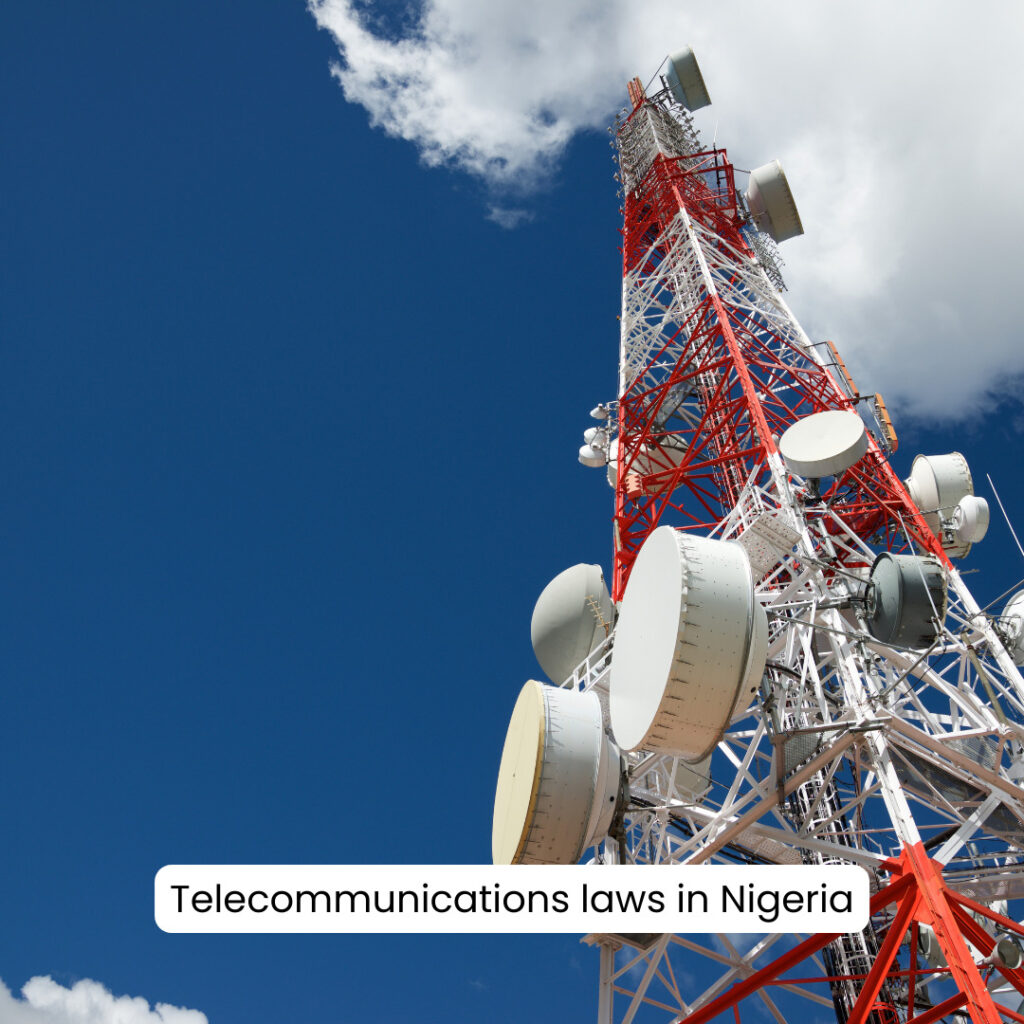Telecommunications Laws in Nigeria
In today’s interconnected world, telecommunications play a vital role in driving economic growth, fostering social inclusion, and facilitating global communication. In Nigeria, a country with a rapidly growing population and an increasingly digital landscape, telecommunications laws and regulations are pivotal in shaping the development of the sector and ensuring access to reliable and affordable communication services. In this article, we delve into the realm of telecommunications laws in Nigeria, exploring their significance, key regulations, challenges, and the implications for connectivity and progress.
The Importance of Telecommunications Laws
Telecommunications laws are designed to regulate and govern the establishment, operation, and management of communication networks and services. These laws promote healthy competition, protect consumer rights, ensure equitable access, and provide a framework for investment in telecommunications infrastructure. In Nigeria, where telecommunications have the potential to bridge the digital divide and spur economic development, effective regulations are essential to create a vibrant and inclusive digital ecosystem.
Key Telecommunications Regulations in Nigeria
Nigeria has implemented a range of regulations to govern telecommunications activities:
- Nigerian Communications Act, 2003: This landmark legislation established the Nigerian Communications Commission (NCC) as the regulatory authority for the telecommunications industry. The act outlines the powers, functions, and responsibilities of the NCC in ensuring fair competition, consumer protection, and efficient management of spectrum resources.
- Infrastructure Sharing Regulations: These regulations promote the sharing of telecommunications infrastructure, such as towers and ducts, among service providers. This approach helps reduce costs, enhance network coverage, and accelerate the deployment of services.
- Universal Service Provision Fund (USPF): The USPF aims to promote access to telecommunications services in underserved and unserved areas of Nigeria. It supports projects that improve connectivity and extend services to remote regions.
- Data Protection Regulations: With the increasing use of digital services, data protection regulations, such as the Nigeria Data Protection Regulation (NDPR) issued by the National Information Technology Development Agency (NITDA), are essential to safeguard individuals’ privacy rights in the telecommunications sector.
Challenges and Considerations
While telecommunications laws provide a framework for the sector’s development, challenges and considerations persist:
- Infrastructure Development: Expanding telecommunications infrastructure to reach rural and underserved areas requires significant investment and coordinated efforts.
- Digital Inclusion: Bridging the digital divide and ensuring equitable access to communication services for all citizens remain key challenges.
- Cybersecurity: As digital services expand, ensuring cybersecurity and protecting networks from cyber threats is critical to maintain trust and confidence.
- Technological Evolution: Keeping regulations up-to-date with rapidly evolving technologies and emerging services, such as 5G and Internet of Things (IoT), is an ongoing challenge.

Looking Ahead
As Nigeria’s telecommunications sector continues to evolve, several areas warrant attention for future development:
- Broadband Expansion: Policies and incentives that encourage the deployment of broadband infrastructure can enhance digital connectivity and drive economic growth.
- Innovation and Competition: Fostering an environment that encourages innovation, competition, and investment in new services and technologies is essential for the sector’s advancement.
- Consumer Empowerment: Educating consumers about their rights, ensuring transparency in service offerings, and providing mechanisms for dispute resolution contribute to a more consumer-centric telecommunications sector.
Conclusion
Telecommunications laws in Nigeria form the foundation for a connected and digitally inclusive nation. By establishing regulations that promote fair competition, protect consumer rights, and encourage investment, Nigeria can harness the potential of telecommunications to drive economic development, enhance social inclusion, and empower its citizens in the digital age. As technology continues to reshape communication and connectivity, a proactive and adaptable regulatory framework ensures that Nigeria remains at the forefront of telecommunications innovation and progress.
